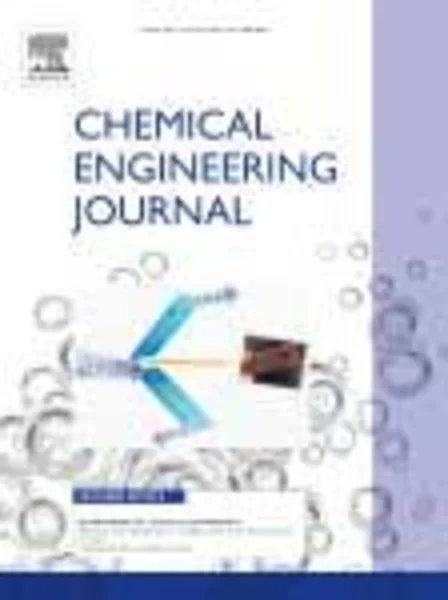-
process optimization and kinetic study for biodiesel production from non-edible sea mango (cerbera odollam) oil using response surface methodology
جزئیات بیشتر مقاله- تاریخ ارائه: 1392/01/01
- تاریخ انتشار در تی پی بین: 1392/01/01
- تعداد بازدید: 491
- تعداد پرسش و پاسخ ها: 0
- شماره تماس دبیرخانه رویداد: -
this paper presents the process optimization and kinetic study for the heterogeneous transesterification of non-edible sea mango (cerbera odollam) oil using response surface methodology central composite design (rsmccd). the four transesterification process variables studied are; reaction temperature (333–453 k), reaction time (1–5 h), molar ratio of oil to methanol (1:6–1:14) and amount of sulfated zirconia catalyst (2–10 g* g−1) (catalyst/oil). from this study, it was found that reaction temperature gave the most significant effect on the conversion of sea mango oil to fatty acid methyl esters (fame), followed by reaction time. there were also significant interaction effects between reaction temperature and amount of catalyst, and between reaction time and amount of catalyst. based on the optimized condition, highest conversion of 97.5% was predicted using the following variables; reaction temperature = 423 k, reaction time = 3 h, molar ratio of oil to methanol = 1:12 and amount of catalyst = 8 g* g−1. experimental verification on the predicted optimum condition gave an actual conversion of 94.1%. the small error between the predicted and actual optimum conversion (3.5%) indicated that the model was valid and accurate in representing the actual experimental values and also in predicting conversion at any condition within the range studied. the developed kinetics model suggested a 1.1th order reaction with activation energy of 36.03 kj mol−1and frequency factor of 5.56 × 102 min−1.
مقالات جدیدترین رویدادها
-
استفاده از تحلیل اهمیت-عملکرد در ارائه الگوی مدیریت خلاقیت سازمانی و ارائه راهکار جهت بهبود
-
بررسی تاثیر ارزش وجوه نقد مازاد بر ساختار سرمایه شرکت های پذیرفته شده در بورس اوراق بهادار تهران
-
بررسی تأثیر سطح افشای ریسک بر قرارداد بدهی شرکت های پذیرفته شده در بورس اوراق بهادار تهران
-
بررسی تأثیر رتبه بندی اعتباری مبتنی بر مدل امتیاز بازار نوظهور بر نقد شوندگی سهام با تأکید بر خصوصی سازی شرکت ها
-
تأثیر آمیخته بازاریابی پوشاک ایرانی بر تصویر ذهنی مشتری پوشاک ایرانی (هاکوپیان)
-
بازاریابی حسی: رویکرد نوین در صنعت بازاریابی
-
using jointly distributed random variables method to determination of saturated sand liquefaction reliability
-
ارائه مدل شبیه سازی برای بهینه سازی گردش مدارک کنترل پروژه
-
میوفیبروبلاستومای عقده لنفاوی در بازوی پسر بچه 13 ساله ”گزارش یک مورد“
-
برآورد بارمالی حوادث منجر به فوت در پروژه های ساختمانی شهر تهران در سال آتی
مقالات جدیدترین ژورنال ها
-
مدیریت و بررسی افسردگی دانش آموزان دختر مقطع متوسطه دوم در دروان کرونا در شهرستان دزفول
-
مدیریت و بررسی خرد سیاسی در اندیشه ی فردوسی در ادب ایران
-
واکاوی و مدیریت توصیفی قلمدان(جاکلیدی)ضریح در موزه آستان قدس رضوی
-
بررسی تاثیر خلاقیت، دانش و انگیزه کارکنان بر پیشنهادات نوآورانه کارکنان ( مورد مطالعه: هتل های 3 و 4 ستاره استان کرمان)
-
بررسی تاثیر کیفیت سیستم های اطلاعاتی بر تصمیم گیری موفق در شرکتهای تولیدی استان اصفهان (مورد مطالعه: مدیران شرکتهای تولیدی استان اصفهان)
-
تحلیل حکم حکومتی در فقه سیاسی
-
پنهان کاری در انتقال داده های پزشکی ایمن برای سیستم های مراقبت بهداشتی مبتنی بر iot
-
ارتباط کوته بینی مدیران با نوسانات سود و سهامداران عمده در شرکت های پذیرفته شده در بورس اوراق بهادار تهران
-
ارائه الگوی مدیریت استعداد در نهاجا
-
utilization of palm oil fuel ash and eggshell powder as partial cement replacement - a review




سوال خود را در مورد این مقاله مطرح نمایید :